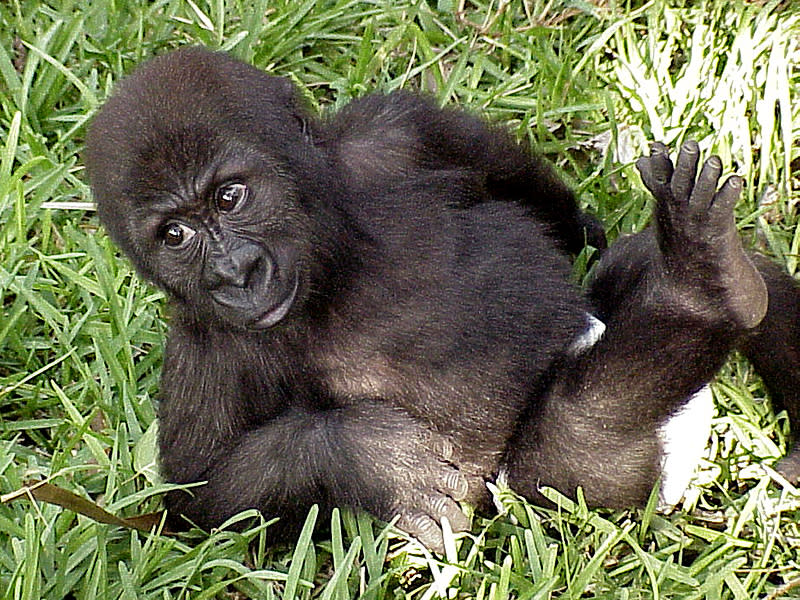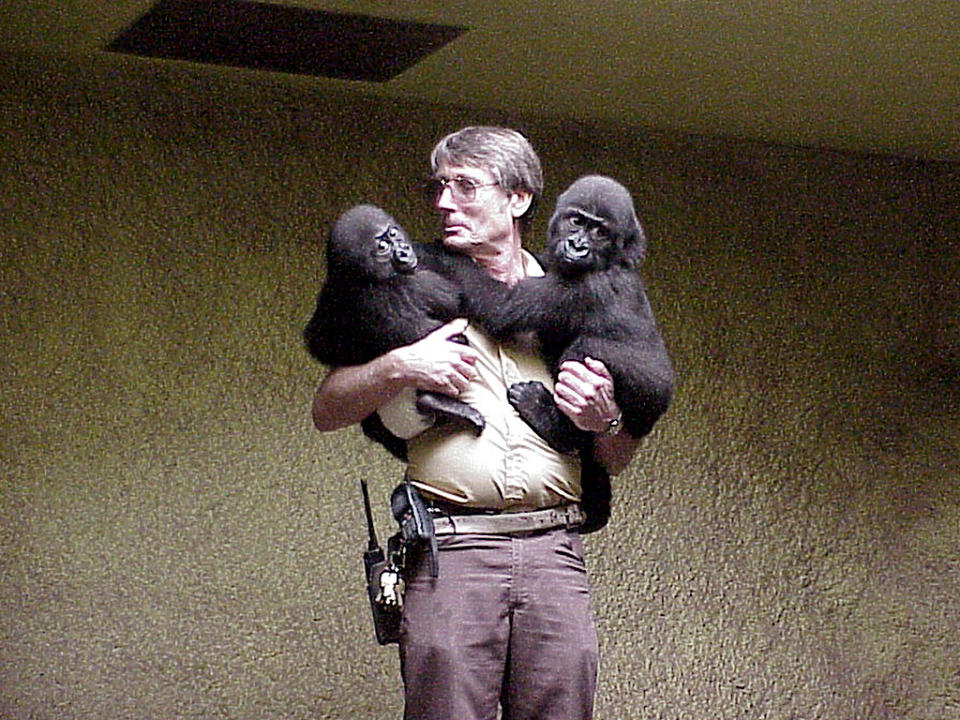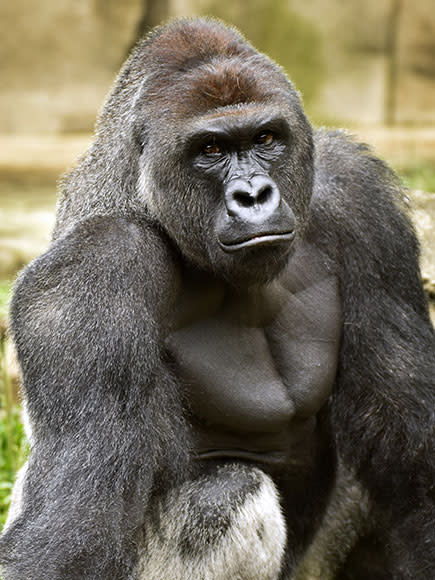Zookeeper Who Raised Harambe from Birth: 'He Was Never Aggressive or Mean to People'
The Texas zookeeper who raised Harambe, the 17-year-old western lowland gorilla who was shot dead at the Cincinnati Zoo on Saturday is mourning the loss of the animal he remembers as "never aggressive or mean."
Jerry Stones, the facilities director for the Gladys Porter Zoo in Brownsville, Texas, raised Harambe from the time he was three weeks old.
"When he was little his mama gave up on him at 21 days old," Stones tells PEOPLE. "I ended up taking him home that night and many nights after that. I'd feed him and change his diapers just like you would a human baby."
From his birth, Stones says Harambe was a "character" and "just a neat little guy to be around."

"He was very playful and always running around with the others," he says of Harambe's time with the other gorillas in his enclosure. When it came to interacting with humans, Stones says "He was never aggressive or mean to people."
While Harambe didn’t appear aggressive, Stones says he stopped venturing into his enclosure when the gorilla was about 7 years old. By the time a gorilla reaches that age, he explains, their size and weight can make them unsafe to engage with.
"The deal is they play rough. Once they get to over 100 pounds, if they smack your legs out from underneath you or grab you by the leg and drag you around they're just playing but you will get hurt," he says. "So you stop going in their enclosures because if they play rough and you get hurt, that would be your fault."
Stones says he can't comment on the zoo's decision to shoot Harambe after he grabbed a 4-year-old boy who had slipped into the gorilla enclosure, but admits that he was "devastated" to learn the news.
"It's hard to believe he's gone," he says. "I know its crazy to think somebody would be that touched by these animals but they're so so special."

Stones believes gorillas to be highly intelligent, but he disagrees with some experts' suggestions that the gorillas remaining at the Cincinnati Zoo could face depression following their loss.
"They'll handle it just fine," he says. "I've been around gorillas that have had losses in their troupe and they stay quiet for a few days but they're okay."
Stones cautions against ascribing too many human characteristics or feelings to the animals. "They do some things that are human-like but they aren't human," he explains. "They're very intelligent but we need to let them be gorillas."
Harambe was sent to the Cincinnati Zoo in September 2014 in the hopes that he would eventually breed with the female gorillas there. Western lowland gorillas are critically endangered in the wild and there are just 765 gorillas like Harambe living in zoos worldwide.

After Harambe was shot and killed, reproductive biologists extracted viable sperm from the mammal for use in programs like artificial insemination and genetic research. "There's a future," zoo director Thane Maynard said during a press conference Monday. "It's not the end of his gene pool."
The staff of the Gladys Porter Zoo is also doing its part to ensure that the beloved gorilla's legacy carries on. The zoo set up the Harambe Fund to support gorilla research and conservation efforts in Africa.
"Harambe means 'pull together' in Swahili and this is the chance for everyone to pull together and help these animals," Stones says. "All we can do is try to take his terrible, terrible death and turn it around by giving his family a chance at a future."

